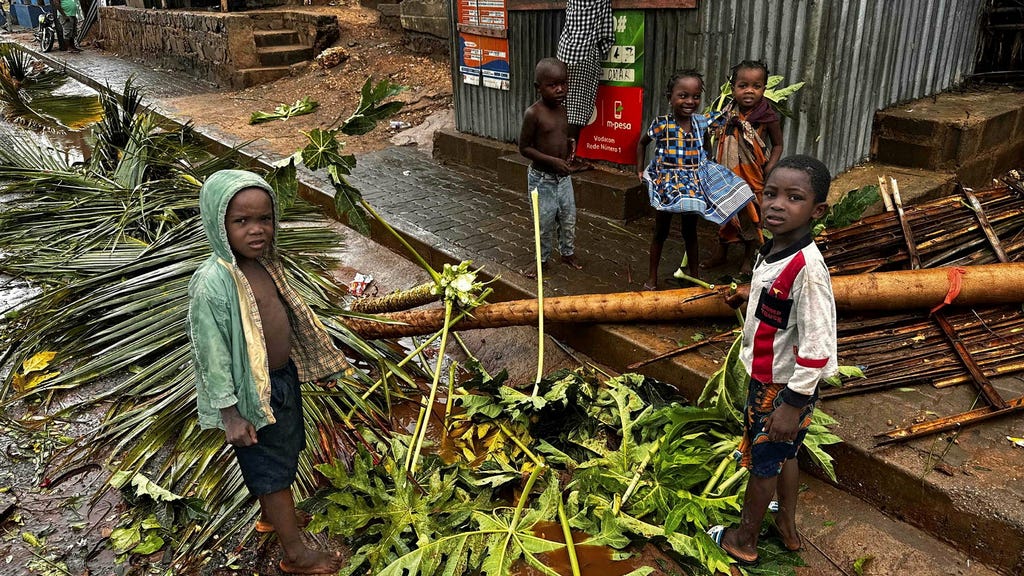Cyclone Freddy, a record-breaking storm that wreaked havoc across Southern Africa, has left a trail of devastation in its wake, particularly in Mozambique. The death toll, currently estimated to be at least 94, is expected to rise as floodwaters recede and rescue workers gain access to previously inaccessible areas. The cyclone’s impact is far-reaching, affecting not only Mozambique but also Malawi and Madagascar, with widespread flooding, infrastructure damage, and displacement of communities. Unicef, along with other international aid organizations, is working tirelessly to provide essential aid, including healthcare, food, clean water, and shelter to the affected populations. The situation, however, remains critical, with many areas still cut off and the full extent of the damage yet to be assessed.
Children are among the most vulnerable in this crisis, facing immediate threats such as lack of food, clean water, and sanitation, increasing their susceptibility to waterborne diseases like cholera. The disruption of education, with schools damaged or repurposed as shelters, poses a long-term threat to their development and future prospects. Trauma from witnessing the destruction, losing loved ones, and experiencing displacement can have enduring psychological impacts. Unicef has prioritized the protection and well-being of children, working to establish child-friendly spaces, provide psychosocial support, and ensure access to essential services. The organization’s efforts are focused on meeting the immediate needs of children while also laying the groundwork for their long-term recovery and resilience.
The scale of the disaster is immense, with entire villages submerged, crops destroyed, and livelihoods shattered. The cyclone has exacerbated pre-existing vulnerabilities in the region, particularly food insecurity, which was already a significant concern in many affected areas. The destruction of crops and livestock further threatens food security, with the potential for widespread malnutrition in the coming months. The damage to infrastructure, including roads, bridges, and communication networks, hinders access to affected communities and complicates relief efforts. The long road to recovery requires not only immediate humanitarian aid but also long-term investments in rebuilding infrastructure and strengthening community resilience.
The international community has responded to the crisis with pledges of financial and material assistance. However, the needs remain vast, and continued support is crucial to ensure that the affected populations receive the necessary aid to rebuild their lives. Beyond the immediate relief efforts, there is a need for a coordinated and sustained approach to address the long-term challenges of recovery and reconstruction. This includes investing in resilient infrastructure, strengthening disaster preparedness systems, and addressing the root causes of vulnerability, including poverty, inequality, and climate change.
Nick Wasunna, UNICEF’s representative in the hardest-hit area of Mozambique, emphasizes the profound impact of this disaster, stating that it ”can affect generations to come.” His words underscore the devastating consequences of Cyclone Freddy, not only in terms of immediate loss of life and property but also in its long-term implications for the development and well-being of communities, particularly children. The scale of the destruction and the vulnerabilities it has exposed call for a concerted and sustained effort by the international community to support the affected populations in their recovery and to build a more resilient future.
The ongoing relief efforts are a race against time to prevent further suffering and loss of life. The immediate priorities include providing access to clean water, food, shelter, and medical care, as well as addressing the specific needs of children, including protection, psychosocial support, and access to education. However, the long road to recovery necessitates a shift from immediate relief to long-term development, focusing on rebuilding infrastructure, strengthening community resilience, and promoting sustainable livelihoods. Cyclone Freddy serves as a stark reminder of the devastating impact of extreme weather events and the urgent need for global action to address the growing threat of climate change.














